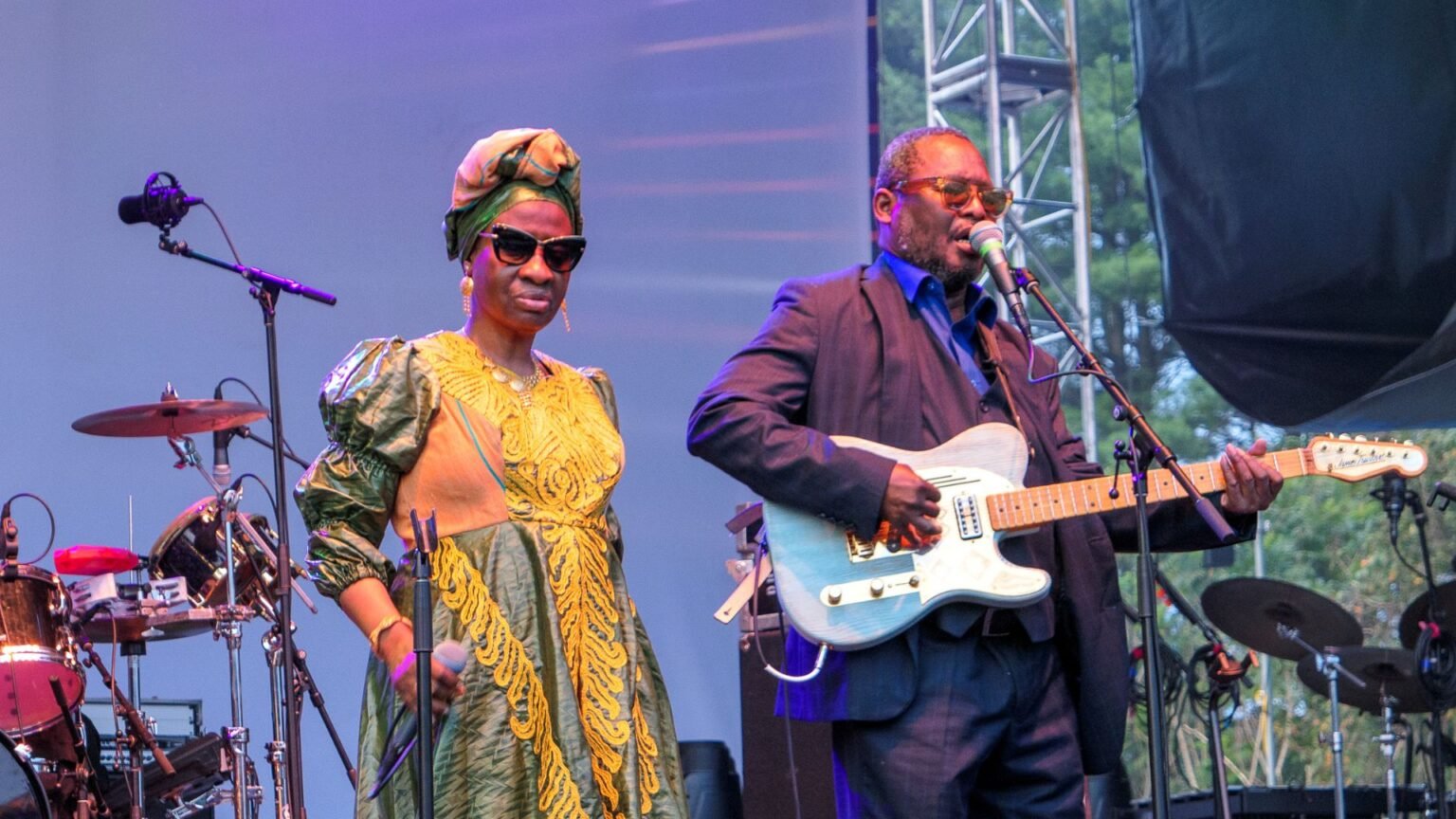Amadou Bagayoko (1954-2025), iconic Malian guitarist, singer, and composer of the famed duo Amadou & Mariam — known as “the blind couple of Mali” — passed away on 4 April in Bamako. He was 70.
The married singers, who met when she was 18 and he 21, took traditional Mali music and blended it with western rock and many other influences to shape a whole new sound that was both rich and playful. They would sell millions of albums for hits like Sunday in Bamako and Sabali.
They would tour the world, opening the 2006 men’s Football World Cup, closing the 2024 Paralympics, singing at former U.S. president Barack Obama’s Nobel Prize concert, winning awards, and selling millions of albums.
Despite this fame, they remained tireless activists for Africans with disabilities. They were known and admired at home for their integrity, where Amadou’s passing is much lamented.
As a musician and professor of music with a research focus on Mali’s music, I met and interviewed Amadou several times. His passing heralds the end of an era for Mali’s long-held musical dominance in the international market.
Who are Amadou & Mariam?
Amadou and Mariam Doumbia were both dedicated promoters of the work of the Institute for the Blind in Bamako — where they had first met in the 1970s as students and went on to be music teachers. They married in 1980 and remained inseparable, forming Amadou & Mariam.
Their hit songs combined the musical traditions of the southern part of Mali where they both came from — Bougouni, Sikasso — together with elements from rock, reggae, Cuban rhythms, and more — all transformed through their own ingenuity, but also, later on, by the ideas of influential producers.
In fact, the surnames Bagayoko and Doumbia are both from the ancient lineage (called Boula) of blacksmiths that date back to the time of the emperor Sunjata Keita, who founded the Mali empire in 1235. The blacksmiths (numu) were often powerful kings. This shared heritage in the noble past of the blacksmiths is significant in their musical synergy.
Amadou Bagayoko
Amadou’s career spanned more than five decades, beginning in the early 1970s when he played electric guitar in several influential dance bands of Mali of the time, including Les Ambassadeurs, fronted by the legendary singer Salif Keita.
President Moussa Traoré’s 23-year military regime from 1968 to 1991 favoured the voices of the griots. These hereditary musicians sang the praises of the people in power in a flowery, strident style.
The life of these dance bands was on the wane by the late 1980s, which is when “la grand couple aveugle du Mali” (the blind couple of Mali) was launched — at first, two simple voices accompanied by Amadou’s guitar, recorded on cassette. At the end of Traore’s rule, Amadou & Mariam’s music responded to the new spirit of democracy that the country was hungry for.
There were many things that set this duo apart from other musicians of the region. They were not griots. Their lyrics are often about the power of love — not a straightforward topic in a country where polygyny (up to four wives, as permitted by Islam) is the norm. Their presence on stage as a blind couple, looking affectionate and mutually supportive — with their chic coordinated attire — also raised the profile of people with disabilities. Their melodies were catchy and upbeat.
Meeting Amadou and Mariam
Sorting through my research recently, I came across a photo I took of them on my old slides, buried in my archives. It was a revelation to see it again.
I took the photo, with their permission, when I first met Amadou and Mariam in 1992 in Bamako. It was at the recording studio that is now known as Bogolan, where they were hoping, at the time, to make some recordings.
It shows Amadou and Mariam in their youth with pride and dignity, values that remained constant for them in later years. On that first encounter, I was struck by their graciousness, their belief in their musical project, and their determination to bring it to a wider public.
I wished at the time that I had the contacts in the record industry to help them. But they did not give up, and they slowly built up their career, building on their sound and image, which was and remains unique within the variety of Malian music.
World Fame
Against all the odds, with their conviction, talent, strong melodies, and good production, Amadou & Mariam became hugely successful in the early 2000s. The album that really launched their international career was Dimanches à Bamako (Sundays in Bamako), brilliantly produced by French-Spanish singer-songwriter Manu Chao, who had a big international hit with his creative and catchy album Clandestino in 1998.
He brought some of those production values into Amadou & Mariam’s songs. Dimanches à Bamako celebrates the vibrant culture of wedding parties held in the streets of Bamako on Sundays, (a day when civil marriage ceremonies are free).
“Dimanches à Bamako” was the first of several successful albums by Amadou & Mariam that were produced by European producers such as Damon Albarn, with songs like Tie ni Mousso (Husband and Wife) that played on the charming and iconic stage presence of Amadou & Mariam as a devoted husband and wife. The songs were accessible and appealing but still delivered a pop punch.
After that first meeting in 1992, we met up again many times, frequently for radio.
Amadou was a much-respected and admired musician whose music reached out to audiences around the world. He was hugely loved and appreciated both at home and abroad, not just for his talent and musical creativity as an excellent guitarist and songwriter — but also for the iconic image that he and Mariam created on stage.
Together, they will be remembered and respected for the values they represent in their music: equality, love, perseverance against disability, and truth. My condolences to Mariam.
This article is republished from The Conversation under a Creative Commons license. Read the original article.





